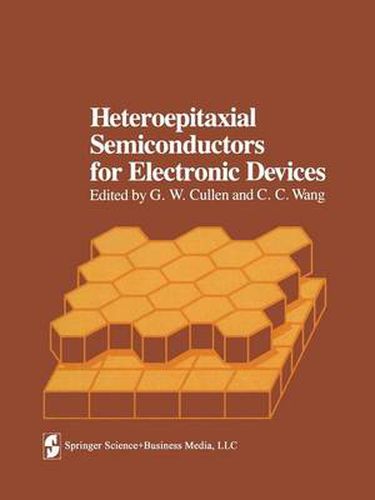Readings Newsletter
Become a Readings Member to make your shopping experience even easier.
Sign in or sign up for free!
You’re not far away from qualifying for FREE standard shipping within Australia
You’ve qualified for FREE standard shipping within Australia
The cart is loading…






This title is printed to order. This book may have been self-published. If so, we cannot guarantee the quality of the content. In the main most books will have gone through the editing process however some may not. We therefore suggest that you be aware of this before ordering this book. If in doubt check either the author or publisher’s details as we are unable to accept any returns unless they are faulty. Please contact us if you have any questions.
Some years ago it was not uncommon for materials scientists, even within the electronics industry, to work relatively independently of device engi neers. Neither group had a means to determine whether or not the materials had been optimized for application in specific device structures. This mode of operation is no longer desirable or possible. The introduction of a new material, or a new form of a well known material, now requires a close collaborative effort between individuals who represent the disciplines of materials preparation, materials characterization, device design and pro cessing, and the analysis of the device operation to establish relationships between device performance and the materials properties. The develop ment of devices in heteroepitaxial thin films has advanced to the present state specifically through the unusually close and active interchange among individuals with the appropriate backgrounds. We find no book available which brings together a description of these diverse disciplines needed for the development of such a materials-device technology. Therefore, the authors of this book, who have worked in close collaboration for a number of years, were motivated to collect their experiences in this volume. Over the years there has been a logical flow of activity beginning with heteroepi taxial silicon and progressing through the III-V and II-VI compounds. For each material the early emphasis on material preparation and characteriza tion later shifted to an emphasis on the analysis of the device characteristics specific to the materials involved.
$9.00 standard shipping within Australia
FREE standard shipping within Australia for orders over $100.00
Express & International shipping calculated at checkout
This title is printed to order. This book may have been self-published. If so, we cannot guarantee the quality of the content. In the main most books will have gone through the editing process however some may not. We therefore suggest that you be aware of this before ordering this book. If in doubt check either the author or publisher’s details as we are unable to accept any returns unless they are faulty. Please contact us if you have any questions.
Some years ago it was not uncommon for materials scientists, even within the electronics industry, to work relatively independently of device engi neers. Neither group had a means to determine whether or not the materials had been optimized for application in specific device structures. This mode of operation is no longer desirable or possible. The introduction of a new material, or a new form of a well known material, now requires a close collaborative effort between individuals who represent the disciplines of materials preparation, materials characterization, device design and pro cessing, and the analysis of the device operation to establish relationships between device performance and the materials properties. The develop ment of devices in heteroepitaxial thin films has advanced to the present state specifically through the unusually close and active interchange among individuals with the appropriate backgrounds. We find no book available which brings together a description of these diverse disciplines needed for the development of such a materials-device technology. Therefore, the authors of this book, who have worked in close collaboration for a number of years, were motivated to collect their experiences in this volume. Over the years there has been a logical flow of activity beginning with heteroepi taxial silicon and progressing through the III-V and II-VI compounds. For each material the early emphasis on material preparation and characteriza tion later shifted to an emphasis on the analysis of the device characteristics specific to the materials involved.